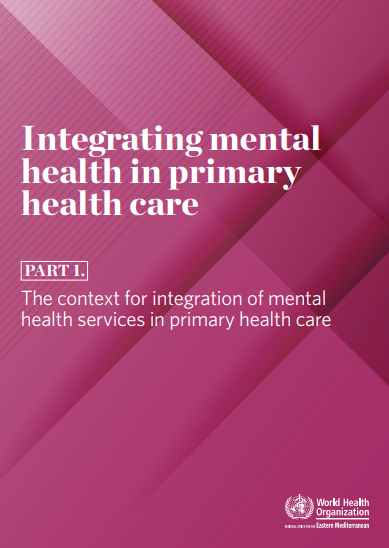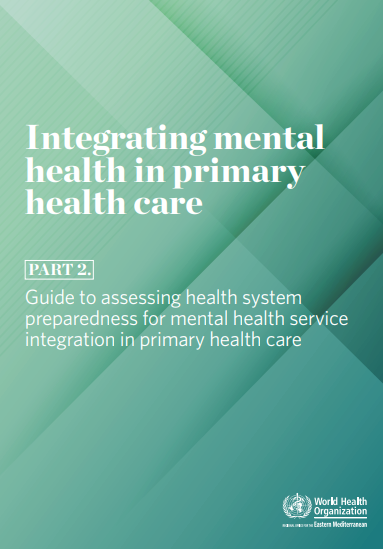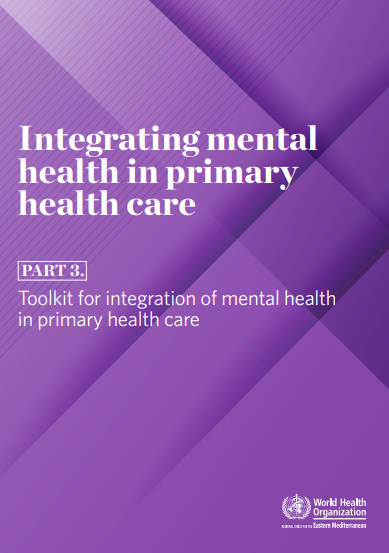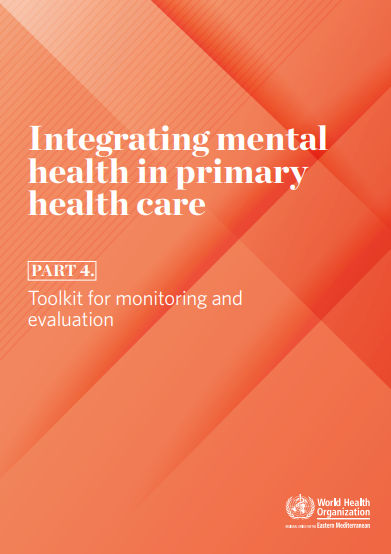Mental health GAP (mhGAP) and training resources

Pharmacological treatment of priority mental, neurological and substance use disorders in non-specialized health care: a job aid for supporting implementation of the mhGAP guidelinesd
Publication date: 2024
This manual covers pharmacological treatments for all priority disorders including clinical indications, dosage regimens, side-effect profiles, commonly encountered drug interactions, and protocols for safe monitoring and stopping medicines. Details are included of some serious side-effects, such as serotonin syndrome and neuroleptic malignant syndrome. It also covers a wide range of medicines that are prescribed by specialists but which may need to be managed by non-specialists during the maintenance phase of recovery. In addition, it covers the emergency management of overdose or toxicity of medicines used to treat common mental disorders. The module on substance use disorders includes aspects of pharmacological management of dependence on nicotine, alcohol and opioids.
Why the guidance on the integration of mental health in primary health care was developed
The advantages of decentralized mental health services integrated in primary health care are well established. It produces good health outcomes for the majority of people with mental health conditions and facilitates holistic management of comorbid physical and mental health problems. It helps to close the huge treatment gap and improves access to effective care for person with mental health needs, providing care closer to their homes and families without disrupting their daily activities. It facilitates community outreach and the promotion of mental health, and long-term monitoring and management of affected individuals. It reduces stigma and discrimination, promotes respect of human rights and reduces the risk of human rights violations. It is cost–effective and affordable, and is a less expensive model than concentrating mental health care in psychiatric hospitals.
Although integrating mental health into primary care has been on the agenda for many years, in many countries, there has been limited progress moving from local, time-limited projects to scaled-up sustainable integration.
It is often said that: “we know what should be done, but how can we do it?” The Guidance on the integration of mental health in primary health care is intended to be an evidence-based practical response to that question. It adopts a systematic and comprehensive health systems approach through all stages of reform, from assessment of preparedness through planning, implementation, and monitoring and evaluation. It provides you with guidance and easy access to the resources and tools that can be used to assist in the integration of mental health into primary health care.
The WHO Regional Office for the Eastern Mediterranean has developed the guidance to support countries in their efforts to integrate the management of MNS disorders into PHC, focusing on the priority disorders identified in the mhGAP programme. It aims to provide a “one-stop” shop for information, guidance and resources on the “what” and the “how” of implementing integration of mental health in PHC in the Region. The target audiences for this guidance are country-level policy-makers and health managers, and many components will be useful for interested nongovernmental organizations and clinical staff at PHC and specialist mental health service levels.
Principles that underpin the guidance
The guidance has 4 parts: the context, assessment of preparedness, toolkit for implementation, and monitoring and evaluation. Part 3, the toolkit for integration of mental health in primary health care has seven chapters, one for each of the health system building blocks and a special chapter on humanitarian emergencies. The Guidance is in e-document format – so that the tools, resources and references can all be quickly accessed via hyperlinks
The guidance uses a health system approach to embed integration into all parts of the health system. Thus, mental health services are incorporated as integral and sustainable components of primary health care.
The guidance is evidence-based – the tools, explanations and recommendations come from previous research and publications.
The guidance builds on existing WHO work – particularly the mhGAP programme, and the WHO service guidance packages. It can also be used flexibly by countries to build on what they already have, depending on how they want to enhance their services.
The guidance aims to be relevant to countries of the Region. Recommendations are tailored for countries belonging to each of the 3 country groups in the Region, and there are special sections addressing issues for countries with humanitarian emergencies.
Integrating mental health in primary health care package
Introduction
Mental, neurological and substance use disorders are extremely common, though they are often hidden from sight. In every 10 people, there is one who is suffering from a mental health condition. This directly affects one in four families globally. Mental health conditions have become an even more pressing concern for most countries of the Eastern Mediterranean, because this region has faced an unprecedented number of humanitarian crises. Trauma, isolation, displacement, loss and poverty generate a surge in psychosocial need and disruption of existing health systems.
The good news is that effective treatments are available and affordable, but until now there is a huge treatment gap, leaving the majority of people with mental health conditions to suffer distress and disability without treatment; and placing an ongoing burden on their families and society.
Our challenge is to develop health systems that deliver accessible cost-effective treatment available to all those who need it – universal health coverage for priority mental health interventions.
Related links
Case study on mental health policy in Jordan
Case study on policy development and implementation in Qatar
Case study on role of family associations in improving quality of mental health care in Morocco
Core competencies for non-specialized prescribers and specialized providers
Ethiopia One Health case study
Integrating and prioritizing mental health care in NCD programmes
Mental Health Atlas 2017 questionnaire
New, referral and closed cases MHPSS and mhGAP register
Occupied Palestinian territory case study
Psychosocial counsellor intervention
Technical instructions and management protocols on MHPSS
WHO-AIMS items that supplement the Mental Health Atlas 2017
Worked example of the calculation of the price of purchasing medication Fluoxetine












